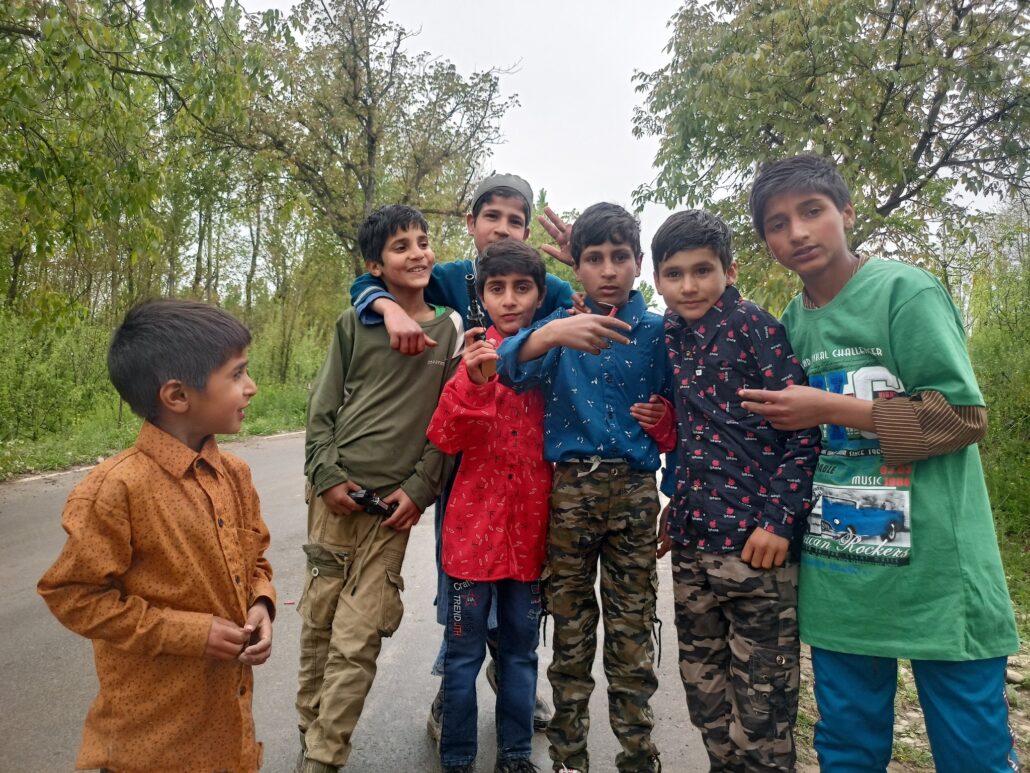
Asim Dar
The crescent has been sighted in Saudi Arabia, and for many Kashmiris scattered across the world, Eid will be on Sunday. They will wake up in cities that do not smell like home, in apartments that do not hold the chaos of family, and they will try to convince themselves that this, too, is Eid. But back in Kashmir, the festival is still uncertain. The moon has not yet been confirmed.
In lands that do not echo with the call to prayer from a neighborhood masjid, Kashmiris in exile mark Eid in muted tones. Some will dress in their best clothes, attend morning prayers at distant mosques, and gather with a handful of friends in a city that does not know their longing. Others will sit alone, scrolling through pictures from home, replaying old voice notes to hear a loved one’s voice. For them, Eid is not just a festival—it is an aching remembrance of a home that lives more in memory than in presence.
Aaqib Dar, living in Turkey for six years now, finds himself caught between two worlds. Saudi Arabia follows a strict adherence to Eid customs, but the grandeur of it, the sheer scale of celebration, feels impersonal to him. “Back home, Eid was chaotic—neighbors walking in and out, cousins barging into our home before we’d even had tea, my mother running between the kitchen and the living room, making sure no guest left without eating. Here, I go to the mosque, return to my apartment, and the silence sits heavy on my shoulders.”
Silence is what defines Eid for many Kashmiris abroad. In London, Mehvish wakes up early, out of habit more than excitement. She will dress up, take pictures to send to her family, and force herself to step outside. But nothing quite fills the void. Her grandmother, who passed away last winter, was the heart of Eid back home. “She used to count out our Eidi with such ceremony, like she was handing us gold coins instead of a few hundred rupees,” Mehvish recalls. “I can still hear her voice, calling out my name to come take my share. I would give anything to hear it again.”
For students and young professionals abroad, Eid is an especially lonely affair. In London, Laiba Wani scrolls through her phone while her roommates sleep. The morning prayers are a distant thought; the nearest masjid is a long commute away, and she knows few familiar faces there. “In Kashmir, the whole day was a movement—prayers, visits, meals, laughter, more visits. Here, it’s a few text messages, a short phone call with my parents, and then the day drags on like any other Sunday.”
Meanwhile, in Kashmir, Eid morning follows its rhythm, unbothered by the absence of those who once filled these homes. The men walk toward the Eidgah, their steps light despite the early morning chill. The children, still groggy from sleep, rush onto the streets, showing off their new clothes and clutching warm kulchas from the local bakeries. The air is thick with the scent of saffron and simmering yakhni.
The graves, too, are visited. Flowers are placed, verses whispered, tears wiped discreetly. For Qurat, a mother who once spent her Eids baking treats for her children now rests beneath the cold earth. A brother who once led the family in Eid prayers now exists only in framed photographs. The empty chairs at dining tables, the unused kangris left in the corner of rooms—they are silent reminders that home is never quite whole.
For those in exile, these absences weigh heavier. Some left willingly, chasing dreams and opportunities. Others were forced by circumstance, by conflict, by a lack of choice. But on Eid, the distance feels the longest. It is not just about missing a place; it is about missing a version of life that cannot be replicated elsewhere.
In New York, Syed Irfan tries to hold on to tradition. He makes Tabak maaz, carefully simmering the ribs until the flavors settle, just as his mother once did. He puts on Kashmiri Naats in the background, letting the familiar verses fill his small apartment. He tells himself he is celebrating Eid. But deep down, he knows—this is not Eid. Not the way it was meant to be. “Eid is not just about prayers or feasts,” he says. “It is about the knock on the door, the laughter in the kitchen, the smell of dew on the grass as you walk to the Eidgah. It’s about knowing you belong somewhere.”
Thousands of Kashmiris across the world will celebrate Eid this way—by recreating what they can and mourning what they cannot. They will smile through video calls, tell their families they are fine, and sit down to meals that lack the comfort of a crowded table. Some will promise themselves that next year, next Eid, they will be home.
And some will know, in their hearts, that home is now a place they can only visit in dreams.




